- Home
- Jason Pinter
The Stolen Page 19
The Stolen Read online
Page 19
The conversation on the ride up was pleasant, if a little awkward. It was hard to put Jack and the Linwood story out of my mind, and I think Amanda could tell I was distracted.
The Toyz 4 Fun store was wedged between a nail salon and a paper goods shop in a strip mall right off Woodthrush. We parked in the lot next to a beat-up Camry. It was a warm day out. I had on jeans and a white T-shirt, while Amanda had on a yellow sundress. The kind of outfit that made me wish we could forget about work and just sit down on a bench somewhere, sip lemonade or do whatever normal couples did when they weren’t investigating kidnappings and disappearing murder victims.
The Toyz logo had the letters spelled out on different-colored building blocks on the awning. A play easel was set up in front of the store. Scribbled on the easel in erasable magic marker was “Deluxe Easel: Special Price $49.99!!!” It was nice to see an easel outside a store that didn’t feature the soups of the day.
Each exclamation point was topped with a smiley face. It was the kind of store I loved to see walking down the street when I was a kid. Not the electronics extravaganzas and smutty Bratz dolls that passed for toys these days, but the true-to-heart toy stores, with owners that cared, knew you by name, knew exactly what you wanted. I didn’t get many toys when I was a kid, but the once-a-year trip to the Leapin’ Lizards toy store in Bend was worth waiting those other three-hundred-and-sixty-four days.
Amanda pushed the door open and a series of wind chimes rang. I couldn’t help but smile.
In front of us were rows and rows of toys. Building blocks. Play-Doh. Action figures. Lego sets. Dollhouses. Erector sets. Everything a growing boy or girl needed to have fun and get into loads of trouble.
An elderly man sat behind the counter, thick glasses shielding kind blue eyes. His hair was sparse, combed over, but there was barely enough to do a passable job of it. He was wearing blue overalls with suspenders, like the OshKosh kid in his waning years. He smiled when we entered. His face was lined, but his cheeks were red, veiny, and his enthusiasm was genuine.
“Corolle doll, right?” the man said. “Or if it’s a boy, let me see…how about My First Pirate Set?”
“Excuse me?” I said.
“Well, I’m guessing you two to be, what? Twenty-seven, twenty-eight? Thirty tops? Your kid is somewhere between three and six. Those toys are my most popular sellers for that age group. So what’ll it be? Corolle or pirates?”
“I’m sorry sir,” I said. “You’ve got us wrong. We don’t have any kids.”
“Bun in the oven?” he said.
“Nope,” Amanda said.
“Gift-hunting then?”
“Sorry,” I said. “We’re actually here because we’re hoping you can answer a few questions for us.”
“Oh,” the man said, confused. “Okay then, what can I do you for?”
I took the receipt from my pocket.
“Were you working here at around three-thirty on July 27?”
“Assume I was. I’m here every day unless I’m sick, and I haven’t been sick in some time. My name’s Freddie, by the way. Nobody will be addressed by ‘sir’ in this store.”
“No problem, Freddie,” I said. I handed the receipt across the desk. Freddie looked at me, unsure of what to do with it.
“That’s a receipt from this store, right?”
He picked it up, glanced at it, said, “Looks like it.”
“Is there any way you could look up in your computer and see who this receipt was issued to?”
“I’m sorry,” he said. “It says here ‘change’” He pointed to a line at the bottom. “Means whoever paid, paid in cash.”
I grimaced. “I know it’s a long shot, but is there any way you might know who purchased that item?”
Freddie looked at the receipt again, furrowed his brow. “This here is for accessories for a Victorian dollhouse,” he said. “I don’t do a lot of sales on dollhouse accessories. Sad to say they’re a little old-fashioned. But I keep some in stock just in case. Probably to make me happy more than the kids.” He thought for another moment, then said, “Elaine Reed.”
“Excuse me?”
“Robert and Elaine Reed. Bob and Elaine. They came into my store all the time when their son, Patrick, was born. They bought that boy all sorts of toy soldiers, must have spent more money than they made on those things. I made sure they knew to keep them away from that boy’s mouth. All those sharp parts, you know. But I remember Elaine suddenly buying everything under the sun for a girl, including those accessories. Little tables, chairs, even a tiny medicine chest.”
“If they have a son, then why were they buying dollhouse accessories?” Amanda asked.
Freddie said, “That’s what I wondered. It wasn’t just the accessories. The first thing they bought was an actual dollhouse. I had to special-order it for them. And not a cheap one, mind you. Then they kept coming back over the next few days to buy more doodads for it. I assumed it wasn’t for Patrick—don’t know if you can tell a boy’s, er, sexual orientation at such a young age. So I asked Elaine one day. Said, ‘Elaine, what are all these doll parts for?’ She told me they’d just had a baby girl.”
“Baby girl,” I said. “Seems like bad parenting to buy such tiny things for a baby.”
“I thought the same thing, remembered what she’d done with Patrick and warned her about that. Elaine told me the girl was actually six years old. I thought, ‘That’s strange, I didn’t remember her being pregnant.’”
“Did you ask her about it?” I said.
“Naw,” Freddie said. “It’s not my right to pry into my customers’ business. But when I asked about it, Elaine kind of looked worried, like I’d pried or something. I figured they might have adopted, or something else was going on, but either way I was happy for the business. And happy for Elaine, because anyone who spends that much money on toys sure must love their child. Not to mention how happy that kid’s going to be. But after that day I asked one question, Elaine and Bob never came back to my store. I hate to think I offended them.”
“Was Elaine a good parent?” Amanda asked.
“Wonderful,” Freddie said. “Some of them, parents, I mean, you can tell they just buy things ’cause they feel obligated to. Like they just want to shut the kid up or think they can buy affection. Elaine, though, she loved it. You could tell she couldn’t wait to get home and see the smiles on her kids’ faces.”
“Did you happen to catch their daughter’s name?” I asked.
“No, I didn’t.”
“I know we’re asking a lot, Freddie,” I said, “but is there any chance you might have an address for Mr. and Mrs. Reed? It’s very important we speak to them.”
“I’m sorry, who did you say you were again?”
“My name’s Henry Parker,” I said, handing Freddie a business card. “We’re investigating a story and really need to speak with the Reeds.”
“I hope everything’s okay,” he said. The man was legitimately concerned.
“I hope so, too,” I said. “But there’s a chance there’s something wrong with one of their children and we need to find them.”
Freddie nodded. “I’ll do whatever I can. I just hope they’re safe. I think a while ago Bob bought Patrick one of those Erector sets, only Elaine didn’t have enough room in the car and asked for it to be shipped home.” Freddie rummaged under the desk, pulled out a large file box. He opened the lid, began to sift through alphabetical orders. “Reed…Reed…Reed…here we go. Elaine and Bob Reed.”
“Can you give us the address?”
“No problem. That package was shipped to 482 Huntley Terrace.”
My jaw dropped.
Amanda said, “Henry, that’s the house…”
“That burned down yesterday.”
29
I needed to learn more about the house on Huntley Terrace. If Robert and Elaine Reed had bought it, there would have to be sale records. I could look them up on streeteasy.com. Even if they didn’t have contact info for th
e Reeds, there would surely be a brokerage firm that would. It made sense. There was a dollhouse in the room Amanda was held in, and the place looked like the perfect abode for a family with young children. But what I didn’t understand was how the two men who held us that night were connected to the Reeds. Or how the Reeds were connected by proxy to Dmitri Petrovsky.
We drove around the streets looking for an Internet café. I didn’t want to have to go all the way back to the city to use the computers at work. We were getting close to something. Many different spools, but I couldn’t figure out the common thread that attached them.
“Look, there.” Amanda was pointing to a small pizza parlor. A sign posted outside read “Internet Access.”
“You up for a slice and a socket?”
“I am a little hungry.”
“Cool. Eat first, search later,” I said.
We parked, walked in and scarfed down two slices and a Coke apiece in less than ten minutes. When we finished, we took two seats in front of a lonely computer in the back of the restaurant. The keyboard was dusty, and I imagined it didn’t get much use. The counterman eyed us suspiciously, as though we were as likely to rip the computer from the wall as use it properly.
When I clicked the computer off sleep mode, I entered in my credit card number for access. Once we were in, I directed the browser to streeteasy.com.
“What is this?” Amanda asked.
“Streeteasy.com is a pretty useful tool. It’s an online database that records any property transactions, along with the buyer, seller, asking price and brokerage firm who handled the deal. I have a log-in.”
I plugged in my log-in information and entered the name Robert Reed in the search field. Several listings came up, with records dating back to 1989, and in five different states.
“This can’t be right,” Amanda said. “How could he live in three different states at the same time?”
“It’s probably not all the same Robert Reed. Hold on, I’ll narrow the search.”
I narrowed the parameters to Hobbs County. The search came up empty. I tried it again, only this time plugging in Elaine Reed instead. Again the search came up empty.
“Maybe someone else bought it for them? Or Elaine bought it under her maiden name?” Amanda asked.
“That’s possible,” I said. “We might have better luck searching for the exact house.” We had enough information to narrow the search range.
According to Freddie at Toyz, the Reeds’ son, Patrick, was currently somewhere between three and five years old. Which meant the Reeds had probably moved into the house on Huntley within the past seven years, either when they decided to try to start a family or when Patrick was on the way and space was essential. I entered the date range in the past eight years just to be sure.
The list came back with two thousand, seven hundred and eighty-three hits.
“I think we can narrow it down more,” Amanda said. “We know there were at least three bedrooms in that house on Huntley. That should help, right?”
“Definitely, one sec.”
I refined the search to only include houses that had a minimum of three bedrooms. The search came back with three hundred and sixty-seven hits. We were making progress.
“Now we just sift through these and look for anything on Huntley. Anything that looks familiar.”
We scrolled through page after page of home sales and purchases through the past eight years. It was fascinating to see the range of prices at which houses had been bought, but it also gave an accurate overview of what the most expensive areas in the state were. Unsurprisingly, Hobbs County homes were ridiculously cheap. Until a few years ago at least, when I noticed they began to trend upward by a large margin.
We’d been sitting at the computer for nearly two hours. The computer had charged thirty-six bucks for the access. I hoped Wallace wouldn’t spent too much time scrutinizing my expense account.
Finally on the two hundred and twenty-fourth listing, we found it.
“There we go,” I said. “Four-eighty-two Huntley Terrace.”
“Bingo,” Amanda added.
According to the database, the house had been purchased in 2001 for three hundred and forty thousand dollars. There was a picture of the property on the Web site. I clicked to enlarge it.
The house was easily recognizable. As was the driveway and garage we’d seen the other night. We clicked through various photographs of the interior and exterior, looking for anything familiar. The rooms were different; obviously these shots had been taken before any renovations.
What was more surprising was that there was no sign of the metal gates, nor the brick wall surrounding the property. Whoever purchased the house in 2001 had built them custom-made.
“That’s odd,” I said, clicking onto the “buyer/seller” link. “According to this, the buyer wasn’t Bob or Elaine Reed, or anyone named Reed at all.”
“Who was it, then?”
“Someone named Raymond Benjamin,” I said. “Does that name sound familiar at all?” Amanda shook her head. Then her eyes opened wide.
“Wait a minute,” she said, pointing at the name on the screen. “When we were in that house, when you came into the room where I was held, didn’t one of the guys call for a Ray?”
I thought hard, vaguely remembered hearing that, but between the cigarette burn and my state of panic I couldn’t be sure. “You think this Raymond Benjamin might have been the same guy from the other night?”
“Be a heck of a coincidence, a guy who obviously knows the place well enough to set us up shares the same first name as the man on the property deed.”
“Yes, that would be a mighty coincidence. It would also mean that Raymond Benjamin knows Dmitri Petrovsky.” I tapped my fingers on the keyboard. “The guy who had me, he’d been in prison before. Attica. He was there during the riot, and that was in ’71. If he was telling the truth, he’ll have a criminal record.”
“I think it’s time to leave the pizza place,” Amanda said.
“It sure is. Let’s see what we can find out about Raymond Benjamin. It’s been at least twenty-four hours since I asked Curt Sheffield for a favor. Let’s give him a ring.”
30
The diner smelled of cooking grease and burned coffee. A plate of eggs sat in front of him, untouched. Raymond Benjamin rubbed his aching jaw, then took another smoke from his pocket, lit it and inhaled deeply. It was all he could do to relax after the events of the past few days. Everything had been going just the way he’d planned, in that there were no disruptions, no mass hysterics. Everything cool, calm and quiet. And then all of a sudden the newshound Parker shows up at Petrovsky’s office and everything goes to shit.
He hadn’t wanted to torch the house. Benjamin actually had some fond memories of that place. But once Parker decided to follow Petrovsky, it was only a matter of time before somebody came knocking. Burning it down was a necessary evil. There was too much inside for him and Vince to get rid of in the little time they had, not to mention having to dispose of the doctor and that beat-up car Parker drove. Better to torch the whole thing and wipe their hands than risk one little thing turning up and screwing up the whole operation. Ray couldn’t afford that. There was too much at stake.
Raymond Benjamin smoked his cigarette, eased back into the booth and took out his wallet. He looked at the pictures inside. The first one was of a beautiful young couple. Ray barely remembered what life had been like back then. He’d been so impetuous, so violent. He was amazed a woman had actually had the temerity to marry him. The first photo had been a year or so before Ray Jr. was born. The boy had Ray’s nose, but got the rest of his features from Ray’s wife. Becca. Becca, who’d died while he was holed up in that shithole prison. Ray Jr., born in 1970, the year before the riots changed everything.
Every person was born with a specific skill set. Ray’s son was born a technogeek, the kind of guy who could build computer systems out of thin air, could design corporate Web sites and security systems as easily
as he buttered a bagel. The last Ray heard, his boy was making nearly a hundred grand a year. He was married with two kids. Ray hadn’t seen them in a decade.
Ray himself was born with a different set of skills. And in a cruel irony, it was that skill set that led Ray to spend the majority of his twenties shuffling from prison to prison. He was a born criminal. Burglar, fighter. Age had sapped much of his brawn. No way that Parker kid would have had the upper hand when Ray had his juices flowing, when his fists were like unstoppable pistons. Now, in his late fifties, Ray was holding on to his fighting memories the way a jilted lover holds on to his, afraid of what would become of him when he realized the man he used to be was slipping away. Lives like Ray’s didn’t have second acts.
He thought about his time in Attica. Somehow the worst and best years of his life. They’d made him what he had become, but he wasn’t sure if the pain and sacrifice were worth it. He thought about that day back in ’71, when his fellow prisoners had finally risen up against the guards, who’d tortured them for so long. Ray remembered watching Dog Day Afternoon as a young man, just a few years after he got loose. He remembered the feeling of pride in his gut when Pacino delivered that electrifying speech. It was simply incredible, like a candle being lit in his stomach, working its way through him until his whole body was warm. He’d seen that in person. He’d been there. Everyone watched that flick and got that vicarious thrill of what it was like to make a stand. Ray had been there. He’d made that stand.
When Vince came back from the bathroom, the red welt above his eye was shining like a Christmas bulb. The younger man slid into the booth across from Ray, went right back to work on his ham, eggs and sausage links. Ray watched Vince eat for a bit, the man shoveling food into his yawning mouth like it was Thanksgiving and he didn’t have a care in the world.
“Eat enough of that, it’ll kill you before a bullet does.”
Vince smiled as he gnawed on a link. “Best to go out having fun,” he said.

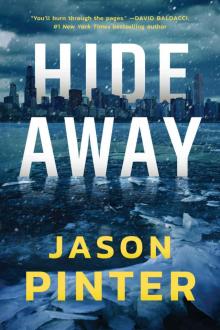 Hide Away (A Rachel Marin Thriller)
Hide Away (A Rachel Marin Thriller)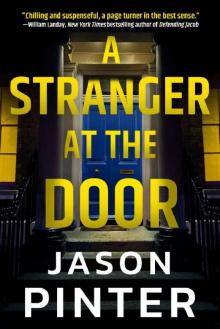 A Stranger at the Door (A Rachel Marin Thriller)
A Stranger at the Door (A Rachel Marin Thriller)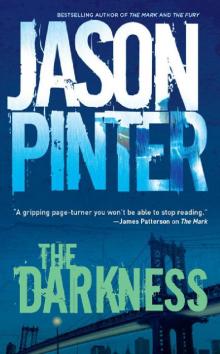 The Darkness hp-5
The Darkness hp-5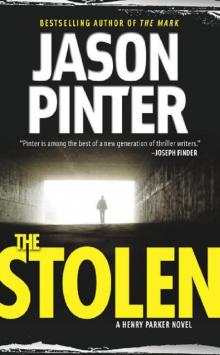 The Stolen hp-3
The Stolen hp-3 The Guilty hp-2
The Guilty hp-2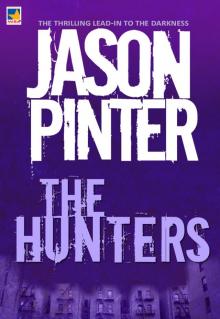 The Hunters
The Hunters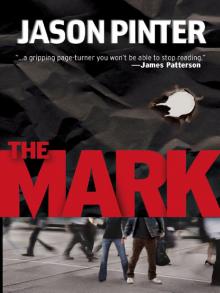 The Mark hp-1
The Mark hp-1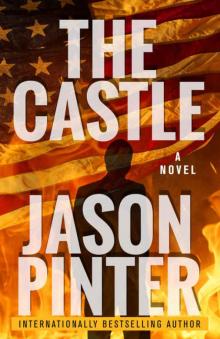 The Castle: A Ripped-From-The-Headlines Thriller
The Castle: A Ripped-From-The-Headlines Thriller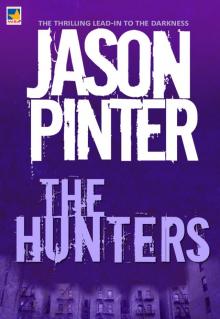 The Hunters (henry parker)
The Hunters (henry parker)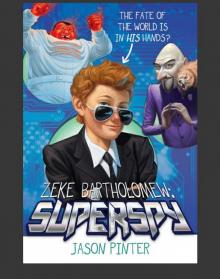 Zeke Bartholomew
Zeke Bartholomew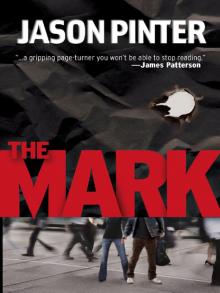 The Mark
The Mark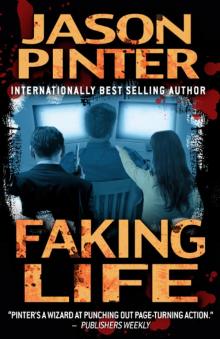 Faking Life
Faking Life![[Henry Parker 01.0] The Mark Read online](http://i1.bookreadfree.com/i2/04/08/henry_parker_01_0_the_mark_preview.jpg) [Henry Parker 01.0] The Mark
[Henry Parker 01.0] The Mark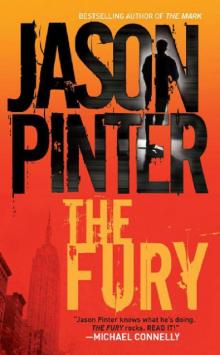 The Fury hp-4
The Fury hp-4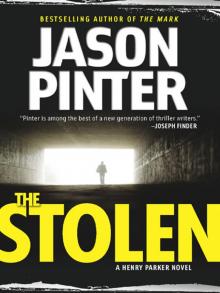 The Stolen
The Stolen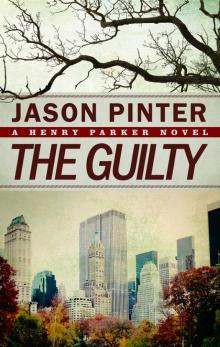 The Guilty
The Guilty